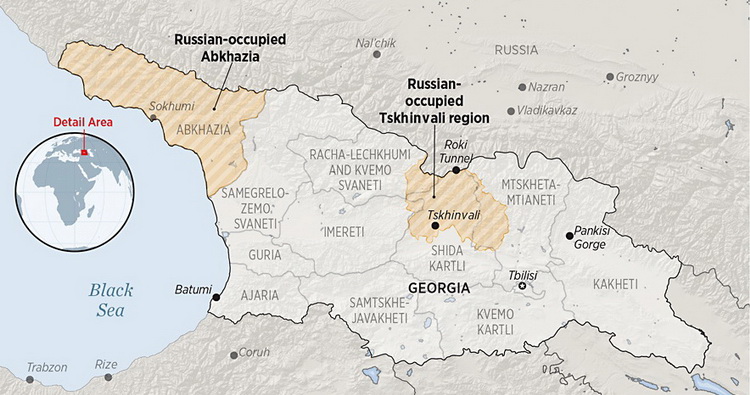The Heritage Foundation: "Time to End Russia’s Veto on Georgia’s NATO Membership"

The article centres on NATO's Article 6 that defined application of the alliance's common self-defence stipulations, and proposes temporary exclusion of Georgia's Russian-occupied regions from it. Image via the Heritage Foundation.

It will require "creative political will" and amendments to NATO conventions to change the status quo of Russia effectively blocking Georgia's path to alliance membership, an article from The Heritage Foundation's Luke Coffey and James Carafano argues.
Member states of the alliance and the Georgian government will need to take a new approach to the question of the country's aspirations for joining, stagnant since the 2008 summit of the alliance where eventual membership was promised to Georgia, the two authors of the piece say.
They outline an idea of measures led by amendments to Article 6 of the NATO treaty that defines areas affected by Article 5 of common self-defence by members states.
This is my realistic roadmap to get Georgia into NATO. It might seem a little controversial but 13 years after Bucharest it’s time to get creative.
— Luke Coffey (@LukeDCoffey) June 9, 2021
If anyone has a better idea please share it.
???????? “Time to End Russia’s Veto on Georgia’s NATO Membership” https://t.co/Bg4ixOaqSh
Coffey and Carafano argue changes to the former article, made to temporarily exclude Georgia's Russian-occupied regions of Abkhazia and Tskhinvali (South Ossetia) from the latter, would begin paving the way for resolving the adverse effect of the occupation on membership aspirations.
Providing points on why the approach would be in line with Georgia's pledge on using peaceful means of restoring its territorial integrity and examples of other states that had territorial disputes on their joining of NATO, the two authors of the article also propose an additional mechanism to the solution.
They offer an idea of implementing buffer zones between the occupied territories and the Georgian-controlled territory, with movement of troops inside the area limited to avoid potential confrontation between the occupying forces and the alliance.
Readiness of the Georgian government to attempt the approach, combat the inevitable Russian information campaign against the move, and the role of Turkey as a major supporter of Georgia's membership in the trans-Atlantic alliance, are also detailed in the article.
Read the full story here.
 Tweet
Tweet  Share
Share
